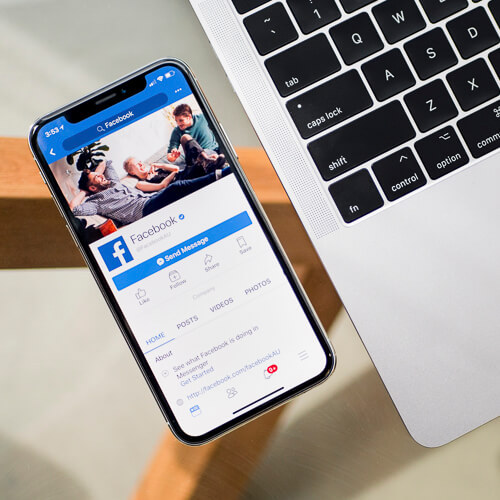EE wants the UK's Online Safety Bill to at least mention women and girls
EE's latest campaign points out the 262-page legislation fails to contain the words 'women' and 'girls.'

British telco EE has launched a campaign calling on the UK government to mention women and girls in the 262-pages-long Online Safety Bill, which is currently being assessed in the House of Lords. The government says the legislation will make online activity safer for both children and adults, while forcing social media companies to accept more responsibility for user safety.
EE, however, points out the bill, which is roughly the size of a short novel, doesn't contain a single mention of women and girls, who are disproportionately affected by online abuse. While the simple absence of a name-check doesn't mean the bill contains no provisions seeking to tackle gendered violence, charities, politicians and others have called on authorities to make it more effective in tackling online misogyny.
So why has EE got involved? Possibly, the telco, as a broadband provider, feels a bit like a baffled postman who has been delivering a worrying number of envelopes with the addresses scrawled in green ink and what look suspiciously like letter bombs to your house.
Figure 1:  The UK legislation seeks to make social media responsible for user safety.
The UK legislation seeks to make social media responsible for user safety.
(Source: Tim Bennett on Unsplash)
According to Amnesty International, one in five women in the UK has suffered online abuse, while Refuge says the figure is one in three, or 36%. A 2017 study by the European Women's Lobby, meanwhile, noted women worldwide were 27 times more likely to be harassed online than men.
The online abuse charity Glitch also points out that women of color are 34% more likely to be mentioned in abusive tweets than white women, and that 65% of women who report abuse to Internet companies don't feel heard. Meanwhile, 87% of those who suffer abuse change their behavior online.
The latest campaign comes from Hope United, a UK-wide group of footballers assembled by EE to fight online hate and abuse. Among other things, it has been working with Glitch to lobby for a more stringent bill.
Last year, Hope United published an open letter calling for violence against women and girls to be treated as a priority harm area under the bill, alongside terrorism and child sexual abuse material. It also called for the bill to include "clearer rules for what is and isn't acceptable online."
Legal but harmful
Despite not mentioning women and girls explicitly, the bill does include provisions against certain types of gendered abuse. Changes made in November, for example, criminalize non-consensual deepfake pornography and the sharing of online images without the victim's consent.
At the same time, however, provisions against so-called "legal but harmful content" have been scrapped. As a result, online platforms will only need to prevent children – and not adults – from accessing certain types of content, including material linked to cyberbullying and online harassment.
The largest platforms will, meanwhile, need to offer tools to "help reduce the likelihood" of encountering some types of content, including those that encourage or promote eating disorders and self-harm, as well as racist, antisemitic and misogynistic content.
Vera Baird, the former Victims' Commissioner – a role created to improve how the justice system works for victims and witnesses – has previously called on the government to include a specific reference to a code of practice on online violence against women and girls.
One such code of practice has been created by a group of UK organizations and experts, including Glitch and Refuge. It details the types of online abuse women and girls face, and steps that can be taken to tackle them.
Lack of protection for women and girls isn't the only complaint levied against the bill, with some critics also calling for stronger protections for all children.
News website Politico has, meanwhile, pointed to the rapidly changing administrations and their differing priorities – indeed the façade of 10 Downing Street has been doing a passable imitation of Prague's Astronomical Clock in the last few years. The website has called the resulting legislation a "Frankenstein bill aimed at pleasing everyone," which has left few, if anyone, satisfied.
Related posts:
— Tereza Krásová, Associate Editor, Light Readinglight reading
Read more about:
EuropeAbout the Author(s)
You May Also Like












